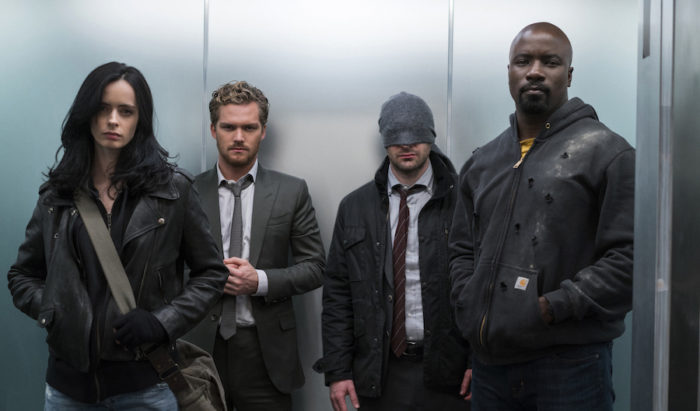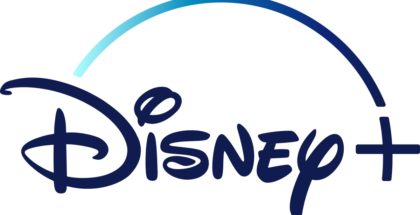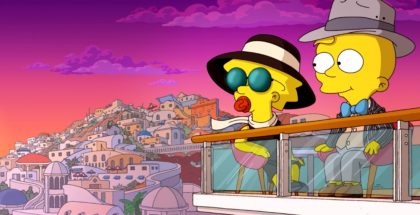Hell’s Kitchen heroes: Marvel’s greatest TV achievement to date
David Farnor | On 16, Mar 2022
Ever since the launch of Disney+, Marvel has made no secret of its small screen plans, pouring money into a slew of MCU spin-offs and companion pieces. The result has been a comic book lover’s dream, with a chance for Hawkeye, Loki, Wanda and Vision to take centre-stage. But their successes, and sometimes missteps, haven’t yet managed to eclipse the towering achievement of Marvel’s TV arm to date: its deep dive into Hell’s Kitchen through a string of series made for Netflix.
A landmark deal at the time, the agreement saw Marvel’s then-separate TV wing, under Jeph Loeb, produce a run of shows that would premiere on the third party streaming platform. Initially, that was conceived as Daredevil, Jessica Jones, Luke Cage and Iron Fist, who would team up for a crossover event series The Defenders. That also led to a spin-off show for The Punisher, who appeared in Season 2 of Daredevil – a sign of the overall project’s growing ambition and also the positive reception it received from fans.
Now, those projects have reverted to Disney ownership, making their debut on Disney’s own streaming service instead, where they now sit alongside The Falcon and the Winter Soldier, WandaVision, Hawkeye, Loki and – in the very near future – Moon Knight and Ms Marvel. Marvel’s new Disney+ series are all entertaining, slick affairs, but sitting next to the Hell’s Kitchen heroes in the same streaming row only highlights the strengths of the ones that have come before.
That’s partly thanks to the adult nature of the original programmes. They boasted gritty, hard-hitting action, with Daredevil’s single-take prison corridor sequence in Season 3 and apartment hallway scene in Season 1 setting a high bar that has rarely been matched across all of Marvel’s screen outings.
“That fight scene at the end of Episode 2 in the hallway, it just lit up the internet,” Daredevil’s Season 1 showrunner Steven S DeKnight said in an interview at the time, praising the stunt team on the series.
That also allowed for villains who were uncharacteristically sinister and intimidating, chief among them Vincent D’Onofrio’s Wilson Fisk, aka crime lord Kingpin.
“Not content with simply being complex by Marvel’s standards, Daredevil has spun a web of intrigue that would put most other dramas to shame,” we wrote in our review of Season 1, when Kingpin made his first appearance. That this wasn’t the last time we would see D’Onofrio’s take on the character in the MCU is testament to the impact and legacy of not only his performance but also the Hell’s Kitchen experiment. (You can read our full reviews of Daredevil here.)
Another notable nasty figure was David Tennant’s manipulative Kilgrave in Jessica Jones, which starred Krysten Ritter as the former hero turned private detective – and what began as a downbeat noir turned into a dark exploration of trauma, abuse and recovery.
“Such direct evocation of the very frightening reality of abusive relationships marks one of the darkest places the MCU has journeyed emotionally, and though it may not be the most nuanced of explorations, there’s still something undoubtedly powerful in a super-powered woman repeating the idea that the consequences of abuse are never the victim’s fault,” we wrote in our review.
Jessica Jones grew in complexity still further in its later seasons, expanding to examine female anger and ambition and the way it’s perceived in society.
“For a superhero show that fuses horror, thriller and noir, Jessica Jones remains an extremely grounded exploration of two women working out where they came from, and where they go next, and how hard, even in their positions of privilege, that can be,” we wrote in our piece on Season 2.
This kind of complexity attracted all manner of star names, including Mahershala Ali as club owner Cottonmouth in Luke Cage and Alfre Woodard as his cousin, Mariah Dillard, a politician in bed with his shifty swathes of money.
“They’re a wonderful pairing, given as much screen time as Cage to bring out the complexities of their supportive and disagreeing relationship,” we wrote in our review of Season 1. “When she speaks about how Black lives matter to the press, she means it, but she’s also just using it as a soundbite – all the while, Cottonmouth lingers in the background, looking on. ‘This gangster life. It’s not what our ancestors fought for,’ she tells him, as they lounge in his club after hours. ‘This is exactly what they died for,’ he argues. ‘Self-determination, control, power.’”
Luke Cage himself was the pinnacle of what the Hell’s Kitchen series managed to achieve – as a bulletproof Black man, he was a powerful political statement as much as a nuanced character, and that kind of nuance and social commentary is rarely seen in Marvel’s more family-friendly output.
With the TV series format also came time to flesh out relationships, with weight and rich layers given to sidekicks such as Daredevil’s best friend, Foggy, and Iron Fist’s scene-stealing Coleen Wing, not to mention Simone Missick as Luke Cage’s police contact, Misty Knight.
While some of the series suffered from the streaming bloat that has characterised many programmes produced for Netflix’s bingeing model, all of the above was possible because of the shows’ decidedly small scale storytelling. There was a conscious move to refer to the big screen Marcel franchises without ever being hamstrung by them – by building towards The Defenders crossover series rather than teeing up an upcoming Marvel movie, the series enjoyed a freedom from MCU connections that have unbalanced shows such as Loki and even WandaVision – the best of Disney+’s Marvel series.
Not all of the Hell’s Kitchen series were successful – Iron Fist was like watching a learning curve play out in real-time – but the result remains that increasingly rare thing in Marvel’s ever-expanding world: a relatively standalone collection of stylish superhero stories that can be bold, thought-provoking and mature in their own unique ways.



















